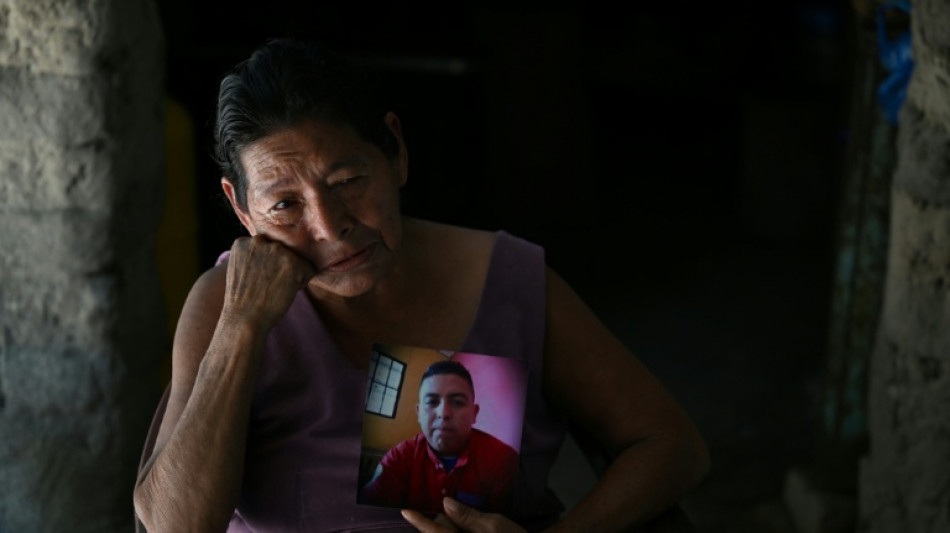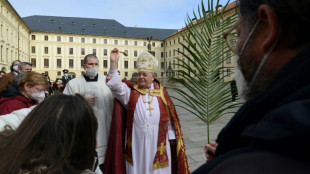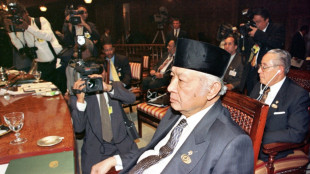

Families lose hope for Salvadorans held in gang crackdown
Ana Mercedes Garcia has barely slept since her son was taken away three years ago, one of tens of thousands of men to have disappeared inside El Salvador's grim prisons since 2022.
Ricardo Ernesto Martinez, 31, was arrested on May 10, 2022, two months after iron-fisted President Nayib Bukele launched a war on gangs terrorizing the central American country.
"For the past three years, at 1 am, 2 am, or 3 am... I get up to pray to God and ask him where is my son? Touch the stony heart of that man," Garcia said, referring to Bukele.
Since March 2022, when the president who styles himself as the "world's coolest dictator" declared a state of "exception" allowing for suspected gang members to be arrested and held without trial or due process, some 88,000 people have been thrown in jail.
On August 15, Congress extended their pre-trial detention for up to two more years to allow prosecutors to bring charges and organize approximately 600 mass trials.
For Garcia, who did not know if her son was alive or dead for months after his arrest, two more years of detention feels like a death sentence.
"Those two (extra) years that the government has handed them, who knows how many people will die," she wondered.
The Central American human rights organization Cristosal called the extended detentions "unjustifiable," saying that keeping someone locked up for five years without trial was akin to "a pre-emptive sentence."
- The Bukele 'model' -
Bukele's hardline approach to El Salvador's powerful gangs has made him one of the world's most popular leaders, and a hero to US President Donald Trump who has called him a "model" for Latin America.
The 44-year-old Salvadoran gained worldwide name recognition in March when he took in nearly 250 Venezuelan migrants deported from the United States and incarcerated them in a harsh prison for terror suspects for months before they were released.
This week, Bukele acknowledged the "terrible pain" of Salvadoran mothers whose sons had been imprisoned since his crackdown started.
But he rejected responsibility, instead blaming the prisoners' parents "for not disciplining them when they were children."
Juana Fuentes told AFP she received no news of her 23-year-old son Nelson Antonio Fuentes for three years until July, when he appeared in a TikTok video of prisoners renovating a school.
Human rights defenders say there is scant evidence that many of those detained in El Salvador are gang members.
Bukele has himself admitted that innocent people have been caught up in his "war" on gangs.
Last year, he announced the release of 8,000 people, saying: "No police anywhere in the world are perfect."
In the case of Ricardo Ernesto Martinez, prosecutors concluded two years ago that there was "insufficient evidence to proceed with the prosecution" of the 31-year-old bricklayer.
But prison authorities refused to release him.
The prospect of all the prisoners now being subjected to mass trials -- of some 1,000 defendants at a time -- has caused extreme anxiety among their families, who fear one-size-fits-all sentences.
"This is serious because it's almost certain that if these types of proceedings were to go ahead, many innocent people would be convicted," said lawyer Felix Lopez, whose 27-year-old son, also named Felix, was arrested in February.
Mass trials, Lopez added, violate the principle of "individualizing" criminal responsibility.
Juana Fuentes, 54, whose 23-year-old son Nelson Antonio Fuentes was arrested in April 2022 and has been held incommunicado ever since, called for the authorities to investigate each case on its own merits.
"Whoever is guilty should pay," she said, but the innocent "should be released."
J.Dhaliwal--VC







